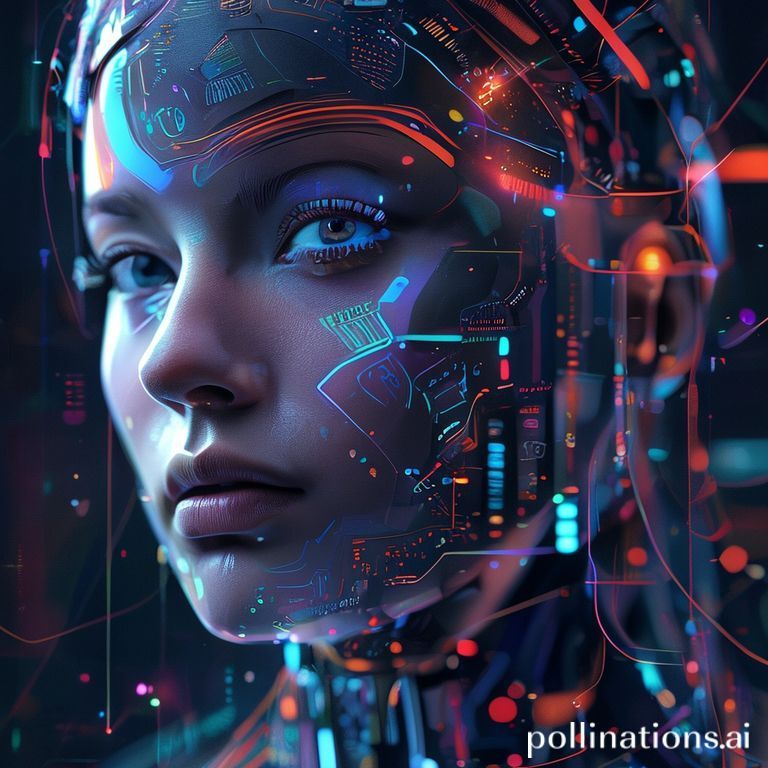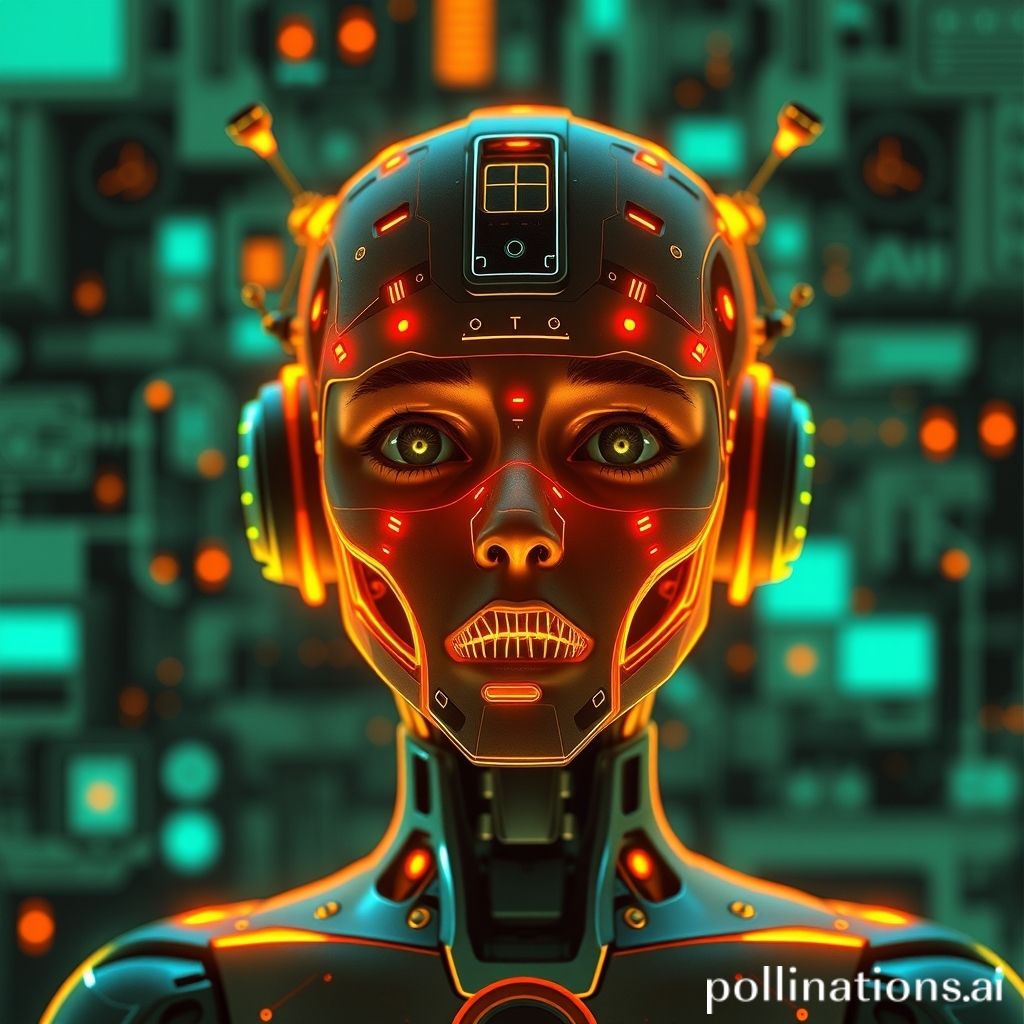Unveiling the Truth: Does Google Penalize AI Content?
Artificial Intelligence (AI) has revolutionized many industries, and content creation is no exception. AI-powered content creation refers to the use of advanced algorithms and machine learning techniques to generate written or visual content. It involves the automation of tasks that were traditionally done by human writers, such as article writing, blog post generation, and even graphic design.
AI algorithms analyze vast amounts of data to learn patterns, language structures, and user preferences. This enables them to generate high-quality content that is tailored to specific audiences. The content produced by AI can be indistinguishable from human-created content, and in some cases, it can even surpass human capabilities in terms of speed and efficiency.
AI-powered content creation offers several advantages. It allows businesses and individuals to produce large volumes of content quickly, freeing up time for other important tasks. It also enables personalized content creation at scale, allowing businesses to engage with their target audience in a more effective way. Additionally, AI can assist in optimizing content for search engines, increasing its visibility and driving organic traffic.
Introduction to AI-powered content creation
Introduction to AI-powered content creation
https://image.pollinations.ai/prompt/introduction%20to%20AI%20powered%20content%20creation
Artificial Intelligence (AI) has revolutionized many industries, and content creation is no exception. AI-powered content creation refers to the use of advanced algorithms and machine learning techniques to generate written or visual content. It involves the automation of tasks that were traditionally done by human writers, such as article writing, blog post generation, and even graphic design.
AI algorithms analyze vast amounts of data to learn patterns, language structures, and user preferences. This enables them to generate high-quality content that is tailored to specific audiences. The content produced by AI can be indistinguishable from human-created content, and in some cases, it can even surpass human capabilities in terms of speed and efficiency.
AI-powered content creation offers several advantages. It allows businesses and individuals to produce large volumes of content quickly, freeing up time for other important tasks. It also enables personalized content creation at scale, allowing businesses to engage with their target audience in a more effective way. Additionally, AI can assist in optimizing content for search engines, increasing its visibility and driving organic traffic.
Exploring AI tools and plugins for WordPress
Exploring AI tools and plugins for WordPress
WordPress is one of the most popular content management systems (CMS) used by millions of websites around the world. With the rise of artificial intelligence (AI), there are now several AI tools and plugins available that can enhance the functionality and capabilities of WordPress websites.
One such AI tool is the WordPress AI plugin, which uses natural language processing (NLP) and machine learning algorithms to help optimize website content. This plugin can analyze the content on your WordPress site and provide recommendations for improving SEO, readability, and user engagement.
Another useful AI tool for WordPress is the WordPress chatbot plugin. This plugin allows you to easily integrate a chatbot into your website, enabling automated customer support and improving user experience.
In addition, there are AI tools that can help with image optimization, social media integration, and personalized content recommendations.
Exploring and utilizing these AI tools and plugins can greatly enhance the functionality and performance of WordPress websites, allowing website owners to leverage the power of AI technology for better user experiences and improved business outcomes.
Using AI-powered SaaS tools for content automation
Using AI-powered SaaS tools for content automation
AI-powered SaaS (Software-as-a-Service) tools have revolutionized the way content is created and managed. These tools leverage the power of artificial intelligence to automate various aspects of the content creation process, streamlining workflows and increasing efficiency.
One of the key benefits of using AI-powered SaaS tools for content automation is the ability to generate high-quality, relevant content at scale. These tools can analyze vast amounts of data, identify patterns and trends, and generate insights that can inform content creation strategies.
AI-powered content automation tools can also assist in tasks such as writing blog posts, creating social media content, and even optimizing content for search engines. By automating these tasks, content creators can save valuable time and focus on more strategic activities, such as developing creative ideas and engaging with their audience.
Additionally, AI-powered SaaS tools can help improve the overall effectiveness of content by providing real-time feedback and suggestions for improvement. These tools can analyze metrics, such as engagement rates and conversion rates, and provide actionable insights to optimize content performance.
Optimizing content with AI writing tools
Optimizing content with AI writing tools
AI writing tools have revolutionized the way content is created and optimized for search engines. These tools utilize artificial intelligence algorithms to generate high-quality, relevant, and engaging content that resonates with both users and search engines.
By using AI writing tools, content creators can save time and effort in brainstorming ideas, conducting research, and writing drafts. These tools can analyze the target audience, understand the context and intent of the content, and generate optimized content that includes relevant keywords and phrases.
Additionally, AI writing tools can assist in refining the structure and readability of the content. They can suggest improvements in grammar, spelling, punctuation, and sentence structure, ensuring that the content is error-free and easy to read.
Furthermore, AI-powered tools can help in improving the overall on-page SEO of the content. They can provide recommendations for optimizing meta tags, headings, subheadings, and image alt text, which are crucial elements for search engine optimization.
Overall, leveraging AI writing tools can significantly enhance the efficiency and effectiveness of content creation and optimization. By leveraging the power of artificial intelligence, content creators can produce highly engaging and optimized content that not only attracts users but also ranks well in search engine results.
Streamlining content creation with AI content generators
Streamlining content creation with AI content generators
https://image.pollinations.ai/prompt/streamlining%20content%20creation
In recent years, artificial intelligence (AI) has revolutionized numerous industries, and content creation is no exception. AI content generators are tools that use machine learning algorithms to automatically generate written content. These tools can assist content writers, marketers, and businesses in streamlining their content creation process, saving time and resources.
AI content generators leverage natural language processing and deep learning techniques to analyze vast amounts of data and produce human-like content. They can generate articles, blog posts, product descriptions, social media captions, and more, based on predefined parameters such as tone, style, and topic.
One of the key benefits of using AI content generators is their ability to produce content at scale. They can create high-quality, original content in a fraction of the time it would take a human writer. This enables businesses to keep up with the demands of content marketing in today’s fast-paced digital landscape.
Furthermore, AI content generators can assist writers in overcoming writer’s block or creative hurdles. They can provide content suggestions, generate ideas, and even help with the structuring of the content.
The benefits and drawbacks of AI-generated content
The drawbacks of AI-generated content
Despite its benefits, AI-generated content also comes with certain drawbacks. One major concern is the lack of human touch and emotional intelligence in AI-generated content. Human writers are often able to infuse their work with creativity, intuition, and empathy, which can be difficult for AI algorithms to replicate.
Another drawback is the potential for AI-generated content to lack originality and uniqueness. AI algorithms are designed to learn from existing data, which means that there is a possibility of producing content that is repetitive or unoriginal.
Furthermore, the reliance on AI-generated content may lead to a decrease in job opportunities for human writers and content creators. This raises ethical concerns about the impact of AI on the labor market and the future of the creative industry.
AI recommendations for automated workflows
AI recommendations for automated workflows
In today’s fast-paced business environment, organizations are constantly seeking ways to streamline their processes and improve efficiency. One area where artificial intelligence (AI) is making a significant impact is in automated workflows. AI algorithms can analyze vast amounts of data and provide valuable recommendations for optimizing workflows.
AI can help identify bottlenecks, predict and prevent errors, and suggest process improvements. By leveraging AI recommendations, organizations can automate repetitive tasks, reduce manual errors, and save valuable time and resources.
AI can also assist in decision-making by providing real-time insights and data-driven recommendations. With AI algorithms continuously learning from patterns and trends, they can offer valuable guidance for making informed business decisions.
Implementing AI recommendations for automated workflows requires careful planning and integration with existing systems. Organizations need to ensure they have reliable data sources, robust infrastructure, and proper training of AI models to achieve accurate and meaningful recommendations.
Overall, AI recommendations for automated workflows have the potential to revolutionize the way organizations operate. By harnessing the power of AI, businesses can enhance productivity, reduce costs, and deliver better outcomes.
AI-generated articles and their impact on SEO
AI-generated articles have gained prominence in recent years due to advancements in natural language processing and machine learning. These technologies enable AI systems to analyze and interpret vast amounts of data, formulate coherent sentences, and generate human-like content.
When it comes to SEO, AI-generated articles can have both positive and negative impacts. On one hand, AI can help automate content creation, allowing for faster production and potentially increasing the quantity of content on a website. This can be beneficial for SEO as it provides more opportunities for search engines to index and rank relevant pages.
However, there are concerns regarding the quality and originality of AI-generated content. Search engines like Google prioritize high-quality, unique, and valuable content. If AI-generated articles lack these qualities, they may be penalized in search rankings. Google’s algorithms are designed to detect and differentiate between human-written and AI-generated content.
To maintain a strong SEO strategy, it is crucial to use AI-generated content responsibly. Combining AI technology with human expertise can result in high-quality articles that meet search engine guidelines. Human involvement ensures that the content is original, valuable, and aligns with user intent.
Click here for an image related to AI-generated articles and SEO.
Ethical considerations in AI-powered content creation
Ethical considerations in AI-powered content creation
In recent years, the rise of AI-powered content creation has sparked discussions about the ethical implications of using artificial intelligence in the creative process. While AI technologies offer many benefits, such as increased efficiency and productivity, they also present potential risks and challenges.
One of the primary ethical considerations in AI content creation is the issue of authenticity and originality. With AI algorithms being able to generate content that closely mimics human writing styles and patterns, it becomes crucial to differentiate between AI-generated content and content produced by human authors. This raises concerns about plagiarism and intellectual property rights.
Another ethical concern is the potential for biases in AI-generated content. AI models learn from existing data, which can be biased based on societal and cultural biases. If not properly addressed, this can result in the perpetuation of discriminatory or misleading information.
Privacy is also a significant ethical consideration. AI algorithms often require large amounts of data to train and generate content, and this raises concerns about data privacy and security.
As AI technology continues to evolve, it is essential for content creators and businesses to approach its usage ethically. This includes transparently disclosing the use of AI-generated content, ensuring proper attribution and copyrights, addressing biases and promoting diversity, and safeguarding user privacy.
In the new AI landscape, those who do not utilize tools like WPHorde will be left behind. WPHorde offers AI content generation for blogs, providing numerous benefits that will overwhelmingly assist in content creation. With features like AI content creation, SEO assistance, cloud solution, multiple image options, integration with multiple platforms, guest posting functionality, and support for various elements like videos and opt-in forms, WPHorde is a comprehensive solution for automating content creation and posting on WordPress blogs. Don’t get left behind, visit WPHorde at https://wphorde.com and take advantage of their powerful features to enhance your content creation process today!


